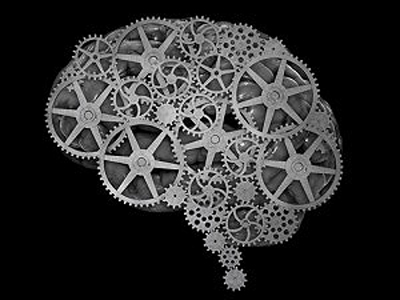Experimental Design & Analysis

This course is a hands-on, project based introduction to the research methods and statistical techniques employed in empirical psychological science. Topics covered in this course include formulation of research questions and hypotheses, measurement of variables, research study design (especially design of factorial experiments), statistics, inference from study results, scientific communication, and research ethics. These topics are treated in a highly hands-on manner; students will DO psychological science throughout this class. The hands-on nature of the class means that students will gain foundational knowledge through at-home, online learning modules, which will prepare them to work with that knowledge in class either individually or in groups to design experiments, analyze data, and interpret results. By the end of the course, a successful student will have all the general know-how and skills necessary to critically evaluate, conceptually design, and interpret the validity of experimental studies in Psychology. To this end, instead of a final exam, students will form groups and complete a research project from start to finish, presenting it in class at the end of the term and writing an empirical research paper.
Instructor: [Spring 2018] [Spring 2017] [Fall 2016]
Psychology of Language

This course is designed to introduce students to the broad field of psycholinguistics (the psychology of language): the scientific study of language comprehension, production and acquisition. We cover topics such as word processing, sentence processing, reading, speech production, bilingualism, etc. Students will learn how, despite its complexity, language processing is something that humans do easily and quickly. We will investigate both how we achieve successful language use and how the language processing system breaks down and what this implies about its structure and function. Although there have been many advances in our understanding of how the human mind processes language over the past decades, many questions remain unanswered. For this reason, students will be introduced to the basics of the scientific method (theory development, experimental design, and data interpretation) and will have to come up with their own questions about psycholinguistics, develop a hypothesis about the answer to that question, and describe an empirical way to test that hypothesis.
Instructor: [Fall 2018] [Fall 2017] [Spring 2017]
Co-Instructor: [Fall 2013] [Winter 2013]
Lab: Psycholinguistics and Cognition

Eye tracking techniques have proven to be incredibly useful in studying mental processes because where our eyes go and how long they linger is a reliable index of what we are paying attention to and how easily we can process it. To study internal mental processes, this course combines hands-on experience conducting research using eye tracking techniques with reading and critically evaluating published studies. Throughout this course, students assist with ongoing research in the lab, as well as read and write weekly responses to published journal articles and develop and create a final project. Throughout this course, students develop skills in scientific writing and communication, critical thought and analysis, experimental design and implementation as well as a general understanding of scientific practices and issues.
Instructor: [Continually offered]
Writing & Reviewing/Presentation & Data Visualization (Graduate Seminars)

Writing and presenting effectively is one of the most important parts of the scientific process. In order for one's research to have an impact, it has to be successfully communicated to a variety of readers/listeners, including journal editors/reviewers, grant program officers/reviewers, job search committees, colleagues, students, and the media/general public. This can be challenging, especially since one must communicate in strategically different ways to each audience. Successful communication requires a writing/speaking style that combines simplicity and clarity with precision and detail where necessary and visualiations the highlight what the audience should pay attention to without distracting from the main message. In these semester-long workshop-style course, the instructor will provide writing/presentation guides and some articles related to principles of effective communication but the majority of the class is student driven, using the students' own research to develop effective communication skills. Each week, one student will share a writing sample or visual presentation related to their current research project. The other students will edit and provide feedback comments in the document. The following class time will be used to workshop different ways to improve the clarity and effectiveness of the argumentation and writing style (or presentation style for spoken presentations) and to discuss general language processing principles that come up in the context of the writing sample/presentation.
Instructor: [Fall 2018] [Spring 2018] [Fall 2017]
International 2-3 Day Workshops (Academic Writing & Publication): [Summer 2016] [Summer 2014]
Cognitive Psychology

Despite a great amount of uncertainty in the world (with respect to visual input, linguistic meaning, etc.), the human mind is amazingly capable of interpreting the world as a stable, certain place with little or no difficulty. Cognitive psychologists design experiments to reveal under what circumstances the human mind succeeds or fails to perform a given task correctly in order to understand how it is organized and how it processes information. This course focuses on the scientific study mental processes with topics such as: perception, attention, memory, language, decision making, etc. Students will be introduced to the basics of the scientific method and are encouraged to come up with their own empirical questions about cognition.
Instructor: [Summer 2010]
